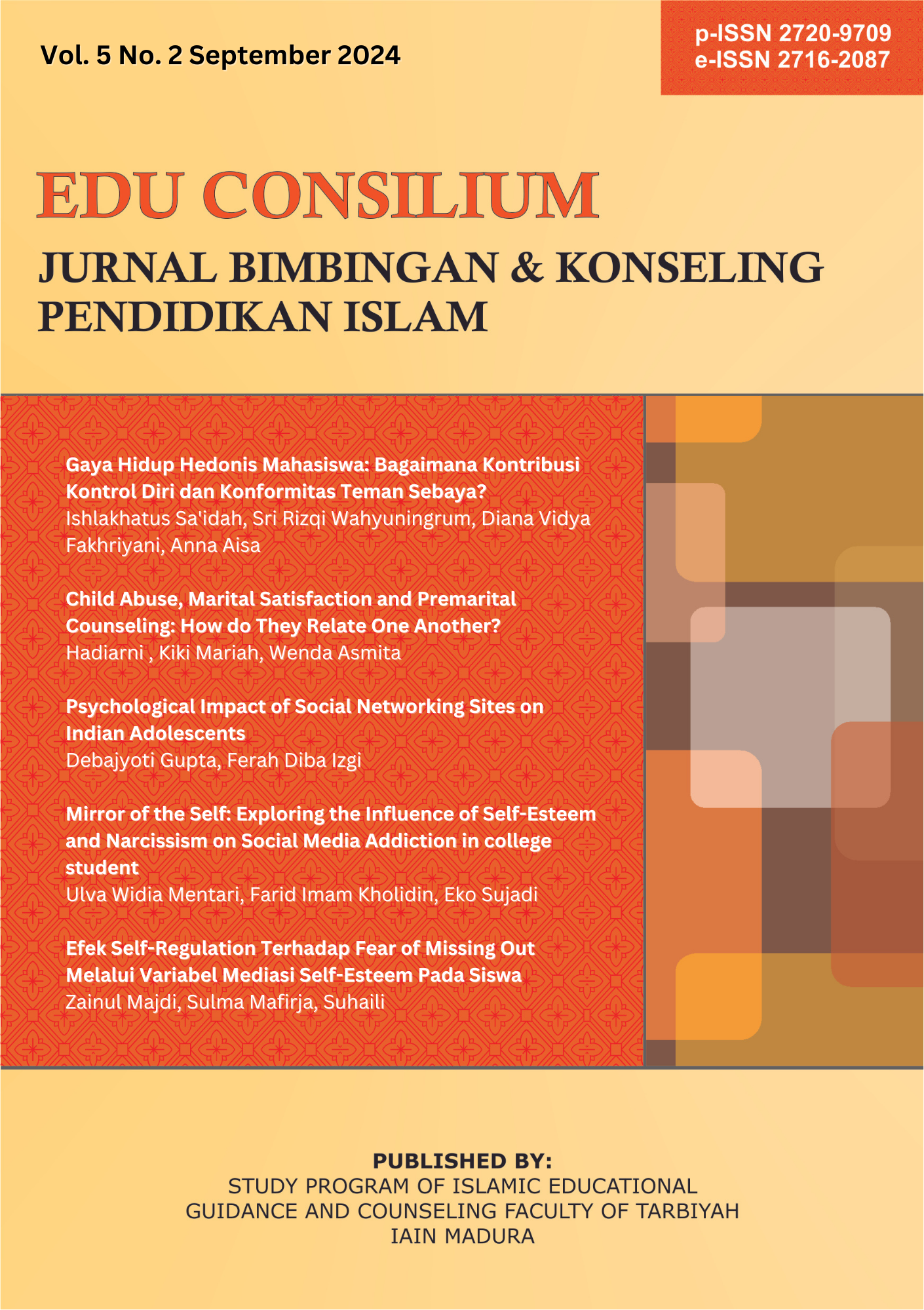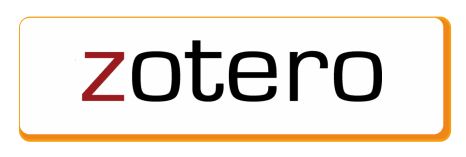Konseling Kelompok dengan Bibliokonseling untuk Meningkatkan Motivasi Belajar Peserta Didik di SMP Negeri 14 Pontianak
 Abstract views: 146
,
Abstract views: 146
,
 PDF downloads: 147
PDF downloads: 147
Abstract
This research is based on high learning motivation which is needed to increase the desire to learn in students. At SMP Negeri 14 Pontianak it was found that there were still students who were identified as lacking motivation in studying in class VIII A. This was characterized by students lacking interest in learning, not enthusiastic about participating in learning, lack of desire to do assignments well, students' environmental conditions are less supportive, they do not get appreciation if they get high grades and students do not have aspirations. The aim of this research is to test the effectiveness of group counseling services using bibliocounseling techniques on the level of students learning motivation. This research uses an experimental research method in the form of Pre-Experimental Design with One-Group Pretest and Posttest Design. The sample in the study was taken using a purposive sampling technique from a population of 34 students, namely 5 students who had low learning motivation. Based on calculations, the Pre-test result was 69.6 in the very low category and the Post-test was 101.4 in the high category. Next, the calculated T was obtained using the Paired Sample T-test, namely -10.577 with a Sig value. (2 tailed) 0.00 < 0.05 which means Ha is accepted and H0 is rejected, and with an N-Gain score of 63.05%. So, it can be concluded that group counseling using bibliocounseling techniques is quite effective in increasing the learning motivation of class VIII A students at SMP Negeri 14 Pontianak.
Downloads
References
Arianti. (2019). Peranan guru dalam meningkatkan motivasi belajar siswa. Didaktika : Jurnal Kependidikan, 12(2), 117–134. https://doi.org/https://doi.org/10.30863/didaktika.v12i2.181
Artinta, S. V., & Fauziyah, H. N. (2021). Faktor yang mempengaruhi rasa ingin tahu dan kemampuan memecahkan masalah siswa pada mata pelajaran IPA SMP. Jurnal Tadris IPA Indonesia, 1(2), 210–218. https://doi.org/https://doi.org/10.21154/jtii.v1i2.153
Asrowi, Susilo, A. T., Hidayat, R. R., & Faradina, H. Z. A. (2021). Buku panduan & lembar kerja bibliokonseling pribadi sosial. CV Eureka Media Aksara.
Atthohiri, M. M., & Saidah, I. (2022). Hubungan tanggung jawab belajar dengan kemandirian siswa di MTs Al-Mukhlishin Galis Pamekasan. DA'WA: Jurnal Bimbingan Penyuluhan & Konseling Islam, 1(2). https://doi.org/10.36420/dawa.v1i2.84
Devianti, R., & Sari, S. L. (2020). Urgensi analisis kebutuhan peserta didik terhadap proses pembelajaran. Al-Aulia: Jurnal Pendidikan Dan Ilmu-Ilmu Keislaman, 6(1), 21–36. https://ejournal.stai-tbh.ac.id/al-aulia/article/view/189
Dirna, F. C. (2022). Pengaruh suasana lingkungan sekolah terhadap peningkatan motivasi belajar siswa di SLB negeri banyuasin. Salus Cultura: Jurnal Pembangunan Manusia dan Kebudayaan, 2(1), 26–35. https://doi.org/10.55480/saluscultura.v2i1.42
Hake, R. R. (1999). Analyzing change/gain scores. http://lists.asu.edu/cgi-bin/wa?A2=ind9903&L=aera-d&P=R6855
Hanifa, D. (2019). Keefektifan bimbingan kelompok dengan teknik bibliokonseling untuk meningkatkan motivasi belajar siswa kelas XII MA al asror semarang [Universitas Negeri Semarang]. http://lib.unes.ac.id/34379/
Hastiani, Rustam, & Heriyani, E. (2019). Bibliocounseling berbasis nilai kearifan lokal robo-robo etnis melayu sebagai penegasan identitas diri remaja pontianak. Solution : Journal of Counselling and Personal Development, 1(1), 26–39. https://e-journal.usd.ac.id/index.php/solution/article/view/1996
Hidayati, R., Triyanto, M., Sulastri, A., & Husni, M. (2022). Faktor penyebab menurunnya motivasi belajar siswa kelas IV SDN 1 peresak. Jurnal Educatio FKIP UNMA, 8(3), 1153–1160. https://doi.org/10.31949/educatio.v8i3.3223
Hukul, K., Jumaeda, S., & Husein, S. (2019). Peran pengasuh panti asuhan yayasan melati alkhairat ambon dalam meningkatkan prestasi belajar anak asuh. Kuttab: Jurnal Ilmiah Mahasiswa, 1(1), 33–42. https://doi.org/https://doi.org/10.33477/kjim.v1i1.882
Kamila, A. (2020). Peran perempuan sebagai garda terdepan dalam keluarga dalam meningkatkan motivasi belajar anak ditengah pandemi covid 19. Jurnal Konseling Pendidikan Islam, 1(2), 75–83. https://doi.org/. https://doi.org/10.32806/jkpi.v1i2.21
Listari, L. (2021). Motivasi berprestasi, penilaian dan hasil belajar siswa. PGRI prov Kalbar.
Nurnaifah, I. I., Akhfar, M., & Nursyam. (2022). Pengaruh gaya belajar terhadap hasil belajar fisika siswa. Al-Irsyad Journal of Physics Education, 1(2), 84–92. https://doi.org/https://doi.org/10.58917/ijpe.v1i2.19
Oktapiani, M., Rahmawati, Y., & Choli, I. (2019). Pengaruh pemberian reward terhadap motivasi belajar siswa pada mata pelajaran pendidikan agama islam. Journal of Education and Instruction (JOEAI), 2(1), 39–48. https://doi.org/10.31539/joeai.v2i1.758
Pratiwi, D. T., & Alyani, F. (2022). Kemampuan pemecahan masalah matematika siswa kelas V SD pada materi pecahan. Journal for Lesson and Learning Studies, 5(1), 136–142. https://doi.org/10.23887/jlls.v5i1.49100
Reknati, P. (2021). Studi tentang motivasi berprestasi taruna sekolah tinggi ilmu pelayaran. Meteor STIP Marunda, 14(1), 97–110. https://doi.org/10.36101/msm.v14i1.184
Rinaepi, & Triwardani, H. R. (2024). Penggunaan media pembelajaran pohon cita-cita untuk meningkatkan motivasi belajar bahasa inggris. Jurnal Fakultas Keguruan & Ilmu Pendidikan, 5(1). http://jurnal.unisa.ac.id/index.php/jfkip/article/view/561
Rudini, M., & Agustina, A. (2021). Analisis motivasi siswa dalam mengerjakan tugas rumah di SMA al-mannan tolitoli. Jurnal Cendekia : Jurnal Pendidikan Matematika, 5(1), 770–780. https://doi.org/https://doi.org/10.31004/cendekia.v5i1.496
Sa'idah, I., Atmoko, A., & Muslihati, M. (2021). Aspirasi Karier Generasi Milenial. Edu Consilium: Jurnal Bimbingan dan Konseling Pendidikan Islam, 2(1), 62-89. https://doi.org/10.19105/ec.v2i1.4429
Sa'idah, I. (2022). Kreativitas Guru Bimbingan dan Konseling dalam Mengembangkan Minat Belajar Siswa. DA'WA: Jurnal Bimbingan Penyuluhan & Konseling Islam, 2(1). https://doi.org/10.36420/dawa.v2i1.139
Sari, E. K. W. (2023). Pengembangan bibliokonseling untuk meningkatkan motivasi belajar siswa. Edu Consilium : Jurnal Bimbingan dan Konseling Pendidikan Islam, 4(2), 30–40. https://doi.org/10.19105/ec.v4i2.9462
Sari, I. P., Hartuti, P., & Sulian, I. (2019). Pengaruh layanan konseling kelompok terhadap interaksi sosial siswa SMA negeri 9 kota bengkulu. Consilia : Jurnal Ilmiah Bimbingan dan Konseling, 2(1), 75–82. https://doi.org/https://doi.org/10.33369/consilia.2.1.75-82
Sugiyono. (2019). Metode penelitian kuantitatif, kualitatif dan r&d. Alfabeta.
Suharni. (2021). Upaya guru dalam meningkatkan motivasi belajar siswa. G-Couns: Jurnal Bimbingan dan Konseling, 6(1), 172–184. https://doi.org/https://doi.org/10.31316/g.couns.v6i1.2198
Supriani, Y., Ulfah, & Arifudin, O. (2020). Upaya meningkatkan motivasi peserta didik dalam pembelajaran. Jurnal Al-Amar: Ekonomi Syariah, Perbankan Syariah, Agama Islam, Manajemen Dan Pendidikan, 1(1), 1–10. https://ojs-steialamar.org/index.php/JAA/article/view/90
Suud, M. F., & Rivai, M. I. (2022). Peran lingkungan dalam meningkatkan motivasi belajar siswa SD di banjarnegara. JCOMENT (Journal of Community Empowerment), 3(2), 64–76. https://doi.org/10.55314/jcoment.v3i2.238
Suwanto, I. (2020). Pendekatan cognitive behavior therapy (cbt) teknik bibliotherapy sebagai intervensi dalam konseling kelompok. JURKAM: Jurnal Konseling Andi Matappa, 4(1). https://doi.org/10.31100/jurkam.v4i1.479
Syahidin. (2020). Meningkatkan minat membaca melalui gerakan literasi sekolah. ASATIZA: Jurnal Pendidikan, 1(3), 373–380. https://doi.org/https://doi.org/10.46963/asatiza.v1i3.163
Wijayanto, W. G. P. (2023). Penerapan teknik biblio konseling untuk meningkatkan motivasi belajar siswa kelas XI di SMA negeri 1 bantaeng. PINISI JOURNAL OF ART, HUMANITY & SOCIAL STUDIES, 1–6. http://eprints.unm.ac.id/29639
The journal operates an Open Access policy under a Creative Commons Non-Commercial 4.0 International license. Authors who publish with this journal agree to the following terms:
- Authors retain copyright and grant the journal right of first publication with the work simultaneously licensed under a
 Commons Attribution-NonCommercial 4.0 International License
Commons Attribution-NonCommercial 4.0 International Licensethat allows others to share — copy and redistribute the material in any medium or format, and adapt — remix, transform, and build upon the material.
- Authors are able to enter into separate, additional contractual arrangements for the non-exclusive distribution of the journal's published version of the work (e.g., post it to an institutional repository or publish it in a book), with an acknowledgement of its initial publication in this journal.
- Authors are permitted and encouraged to post their work online (e.g., in institutional repositories or on their website) prior to and during the submission process, as it can lead to productive exchanges, as well as earlier and greater citation of published work (see The Effect of Open Access).




















